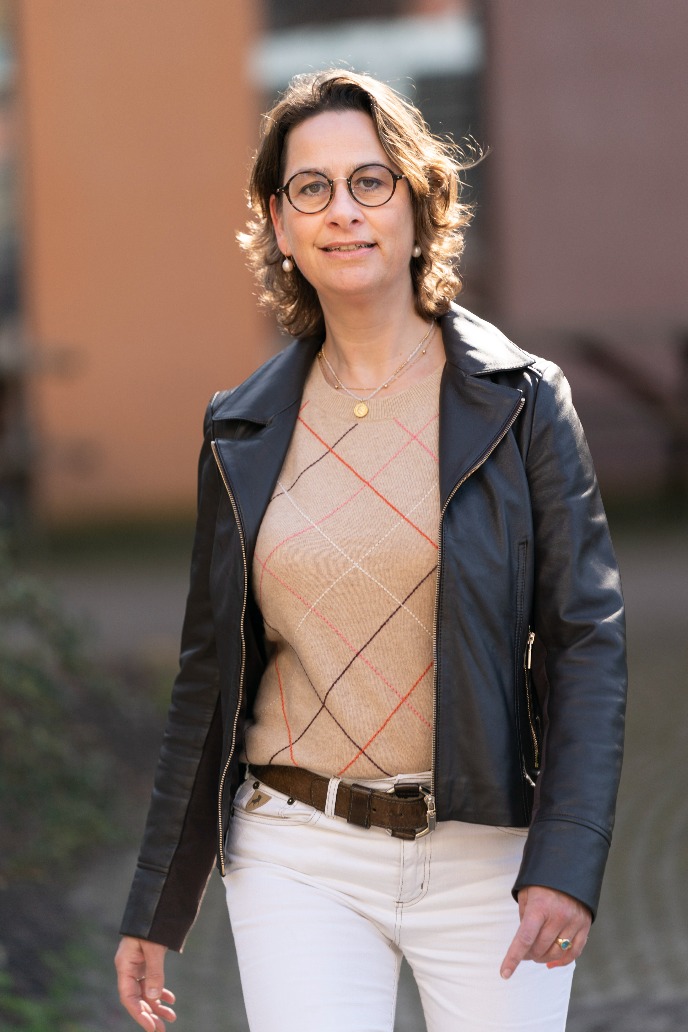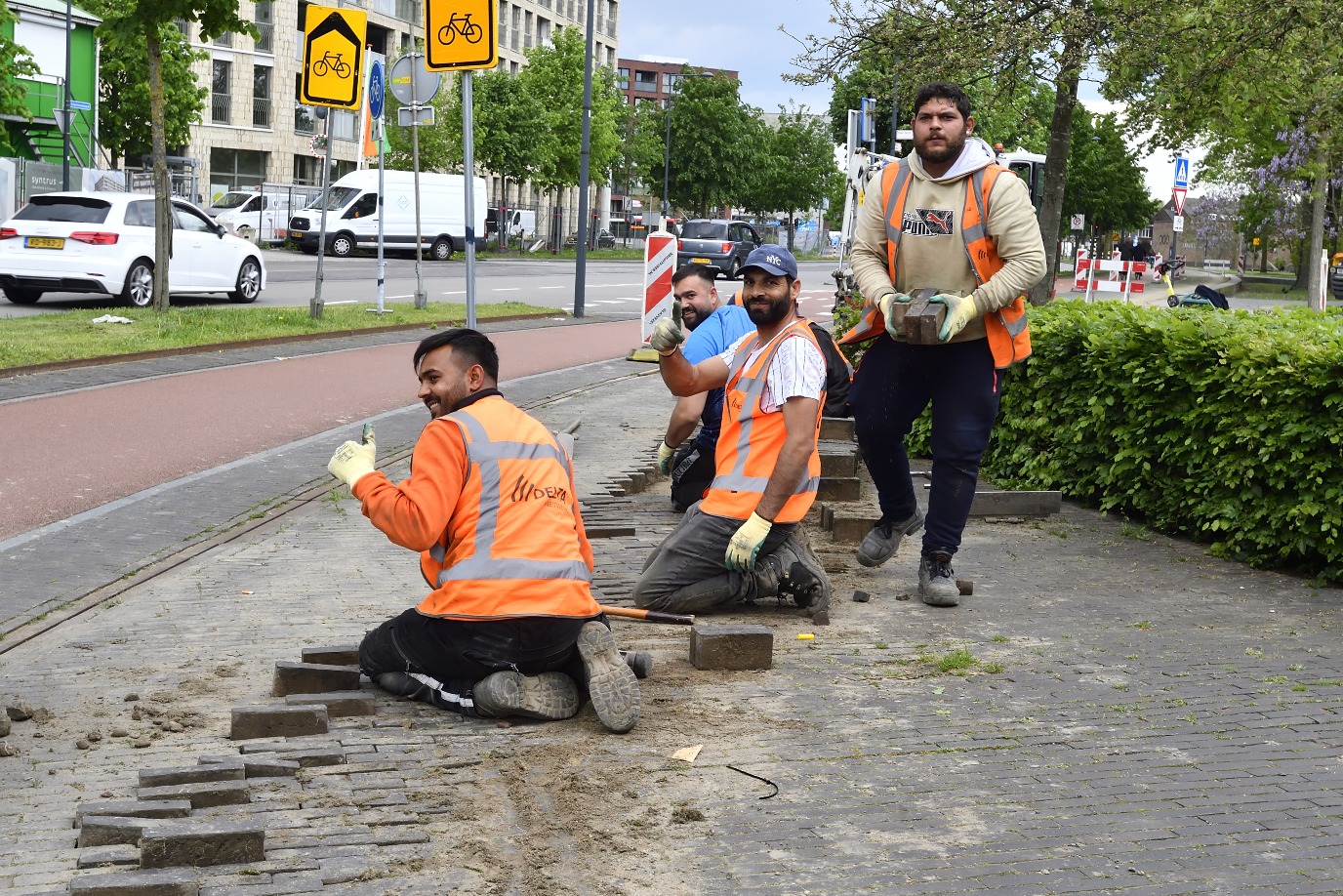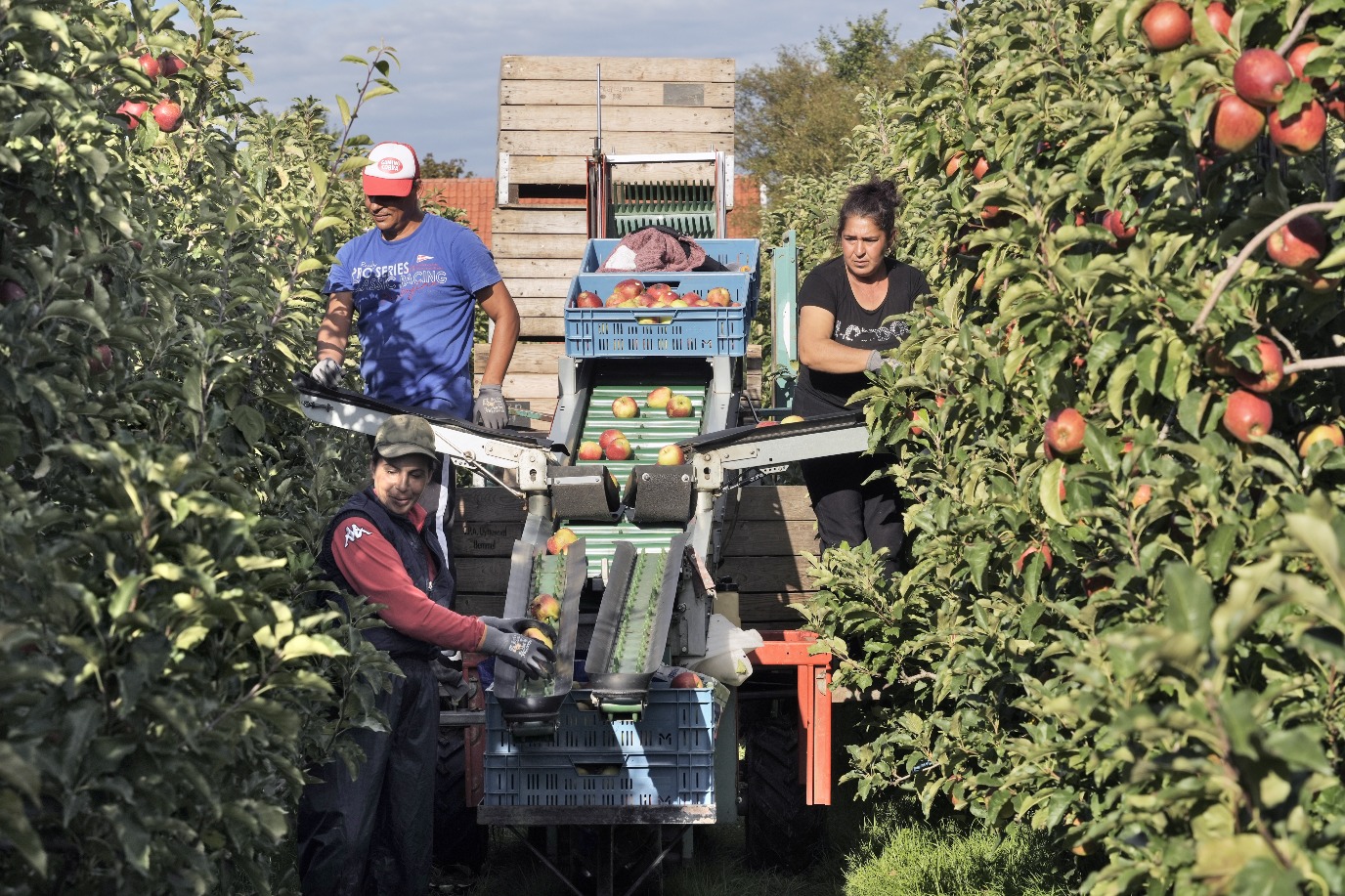Migration too complex for a political one-liner

On the day that her PhD student Daniël van Wijk defended his thesis about the economic factors that cause people to postpone having children, Helga de Valk made time for an interview. Not about her work as vice chair of the Dutch State Committee on Demographic Developments 2050 (Staatscommissie Demografische ontwikkelingen 2050), as this committee is still hard at work and not due to publish its findings until early next year, but about her research into migration and its effect on the life course of individuals. Hardly surprising that the conversation soon turns to complex, global issues such as migration and the ageing population.
Text: Marjan Brouwers
Studies, work, and love
‘What a lot of people don’t realize is that most migrants come to the Netherlands for work, studies, or love,’ says De Valk. ‘Asylum seekers are just a small percentage. The overriding idea is that we are being swamped by African refugees who cross the Mediterranean Sea in small boats, but people are largely unaware of the other type of migrants. Refugees are making horrific journeys and I certainly don’t want to play this down, but if you look at the figures, you’ll see that asylum seekers account for a relatively small proportion of those migrating to the Netherlands. The vast majority of migrants comes from other European countries and are not asking for asylum. They come here to work, to study, or to join their loved ones.’
Ageing population
Alongside migration, one of the other major issues currently facing the Netherlands is the ageing population. De Valk: ‘The ageing population issue is about how the population as a whole is growing older. This is not just because we are living to an older age and the number of over-80-year-old baby boomers is rising fast, but also because the number of younger people is dropping by comparison. Fertility here in the Netherlands is relatively low, which is reflected in the population pyramid. The number of older people is expected to peak in the years to come, but even after that, we will still have a relatively old population because the post-baby boom generations had relatively fewer children.’

‘We need to find a new mix of people to uphold our workforce.’
Drop in fertility
One of the reasons that fertility in the Netherlands has dropped is that the pill has given women more control over how many children they have. De Valk: ‘Education is also a factor: highly educated women tend to have fewer children. A third factor concerns the secularization of society: in the ‘old days’, the priest came to visit six months after the birth of a child to ask when the next one was due. This doesn’t happen anymore. These factors that enable people to postpone, or even refrain from, having children are also evident in other countries.’
Invest in young people
There are more reasons for young people delaying parenthood or having fewer children, says De Valk. Her PhD student Daniël van Wijk carried out research into this subject. ‘It appears that increasing numbers of young people are putting off having a family for economic reasons, such as uncertainty about finding a permanent job or suitable housing. In demographic terms, these women will therefore have fewer children. So we need to get used to the idea that an older society is here to stay. But this doesn’t mean that we should organize society to only suit the needs of the older generations. Failing to invest in young people is the worst thing we could do. Everything we do in the early years has a knock-on effect in later life. The more we invest in young people, through education for example, the higher the chance that they will stay healthy for longer, have children, and continue working.’
New mix of working people
‘We cannot maintain the same level of prosperity unless something changes,’ De Valk continues. ‘We don’t just need young migrant workers; we also need everyone who is currently standing on the sidelines, including older people who can and want to continue working, and women who could work longer hours. We need to find a new mix of people to uphold our workforce. So instead of simply allowing all these migrant workers to leave, as happens with many young Poles, we should be encouraging some of them to stay. We need to take a long, hard look at who is leaving, and do more to keep the migrants we need in our country. This is how Germany, for example, is tackling this problem.’
Moving too often
It is also important to make sure that the children of asylum seekers are given a better start. One of De Valk’s lines of research is examining the effect of moving during childhood on children's subsequent life course. De Valk: ‘Children who move house when they are very young do not seem to notice many lasting effects. This changes during puberty. Children who move frequently during this period seem to suffer consequences of this later in life. Particularly if the family situation is unstable, as in the case of divorce, or in combination with poor housing or poverty. These children have a higher risk of health problems in later life or may have difficulty forming stable, adult relationships.’

‘Prioritize future-driven policy’
Asylum policy for children
This is why the professor is highly critical of the Dutch policy on migration, whereby children are sometimes forced to move between locations or shelters in different parts of the country six or seven times in a short space of time. ‘These children have already endured difficult situations and been through a lot. A prime example of unstable circumstances. Why we don’t move asylum seekers with children into a permanent location, where they can stay until they know whether they can or cannot stay in the Netherlands, like they do in some other countries? I think this could prevent a lot of problems for these children in later life.’
Different approach to living and working
According to De Valk, we must drastically change the way we think about living and working if we want to create a good balance of young and old in an ageing population. ‘We can do this: we have the space, but we might need to look at things differently. Compared with other European countries, we live in a fairly grand style: we are used to more square metres of living space per person than elsewhere in Europe. This creates opportunities, but we do need to change our mindset.
In Germany, for example, they have multi-generation housing, where families live together. This appeals to the older Moroccan and Turkish generations, who were used to these living arrangements in their native countries but now find themselves living in run-down rented accommodation in city centres. A lot of older Dutch people have left the cities and are living lonely lives in over-sized houses, often in rural areas where very few young people live.
Priority
However, as the peak of old baby-boomers will be on us by 2030, our current priority must be to formulate policy that focuses on the future. Our approach to living together must change fundamentally and we need to think more creatively. This means structural changes to the way we organize society. If we are to do this, we need all hands on deck: women, young people, old people, and migrants, whether they come to the Netherlands for work, for love, or for asylum.’
Helga de Valk (1972) studied at Utrecht University, where she was also awarded a PhD. Since 2015, she has been an honorary Professor of Migration and the Life Course in the Faculty of Spatial Sciences and since 2020, director of the Netherlands Interdisciplinary Demographic Institute (NIDI) in The Hague, which is affiliated to the UG. In 2018, she received an ERC Consolidator Grant for her MYMOVE research project. De Valk is also vice chair of the Dutch State Committee on Demographic Developments 2050. This committee was set up by the Dutch Cabinet and Parliament to advise on the challenges that face the Netherlands in the next 30 years, formed by an expected ageing population and continued migration. Their findings are due in early 2024.
More information
Helga de Valk
More news
-
01 December 2025
The power of movement
